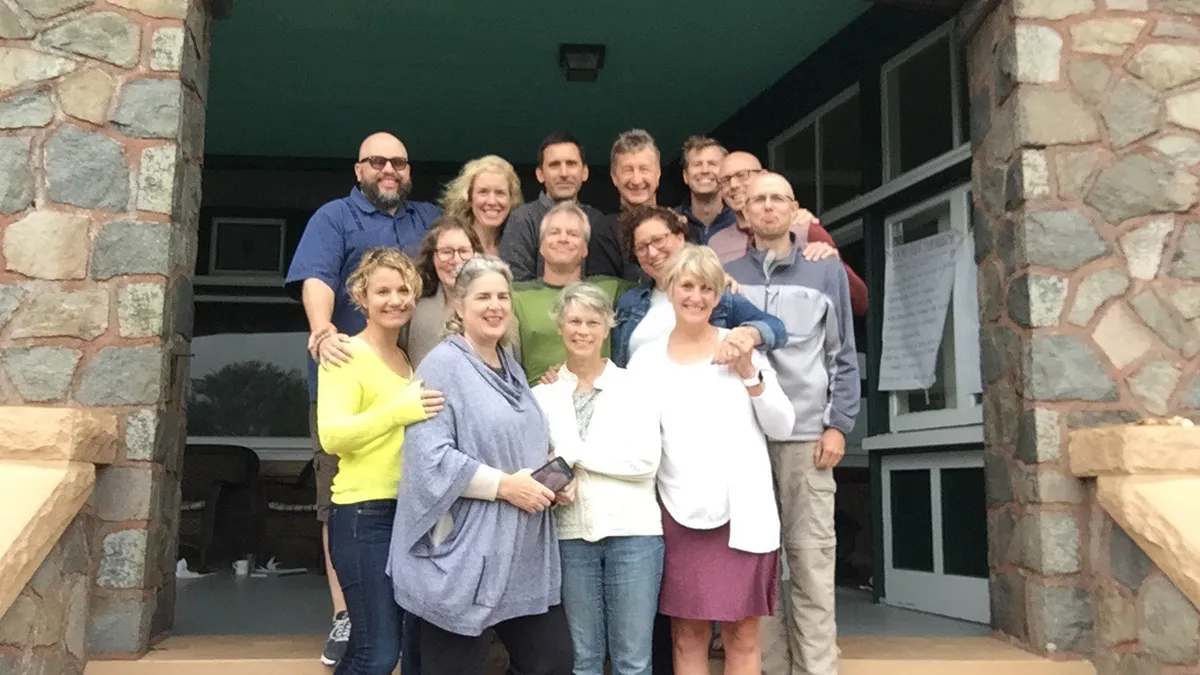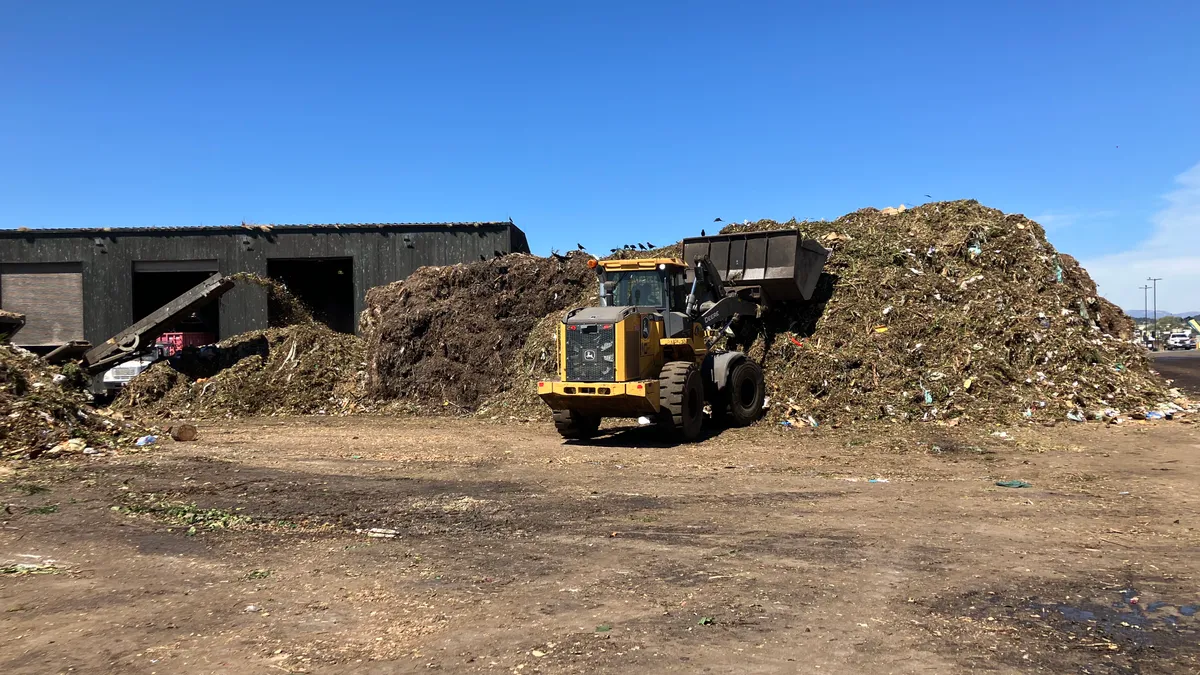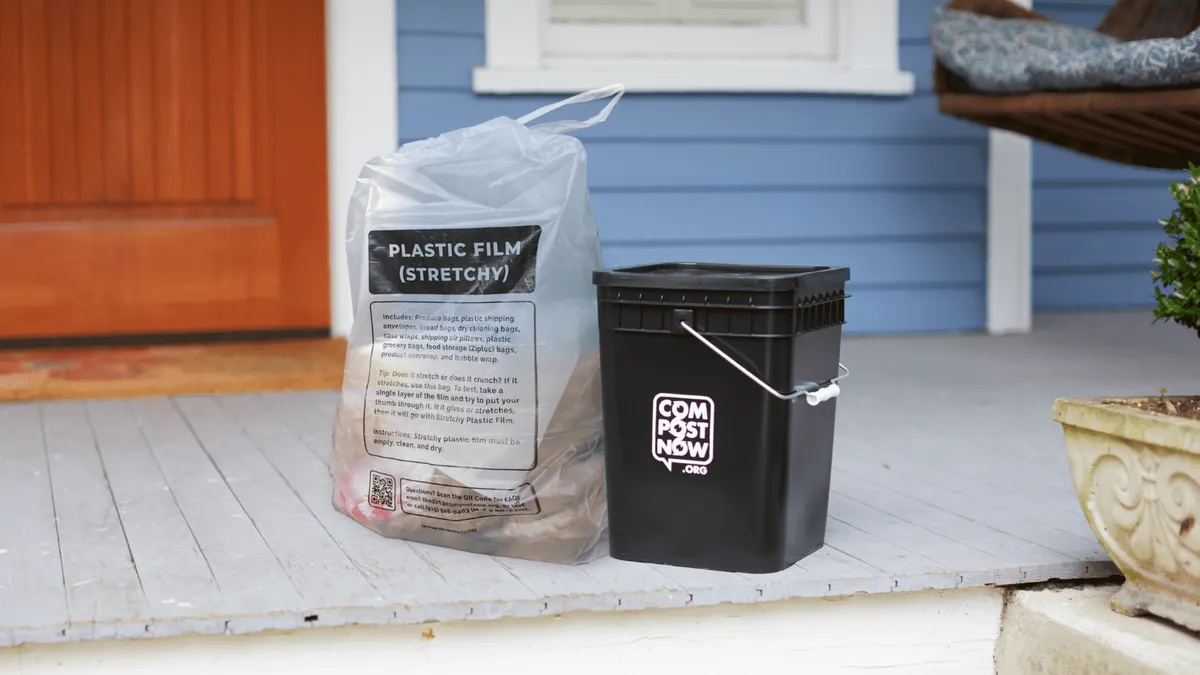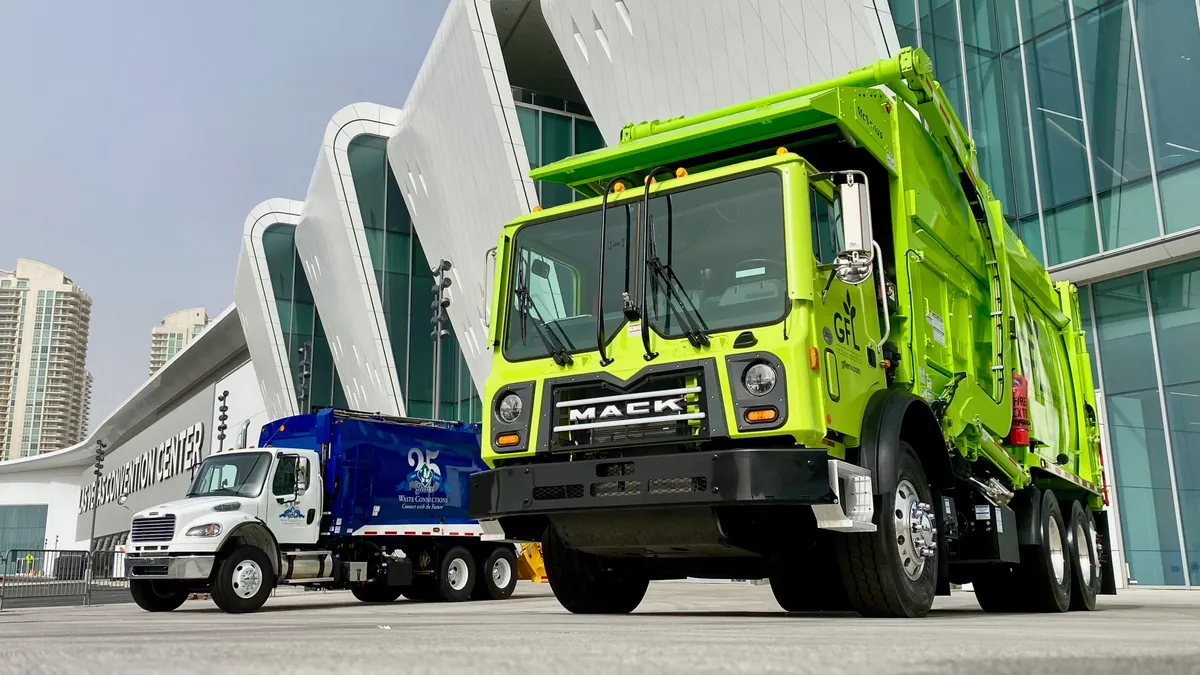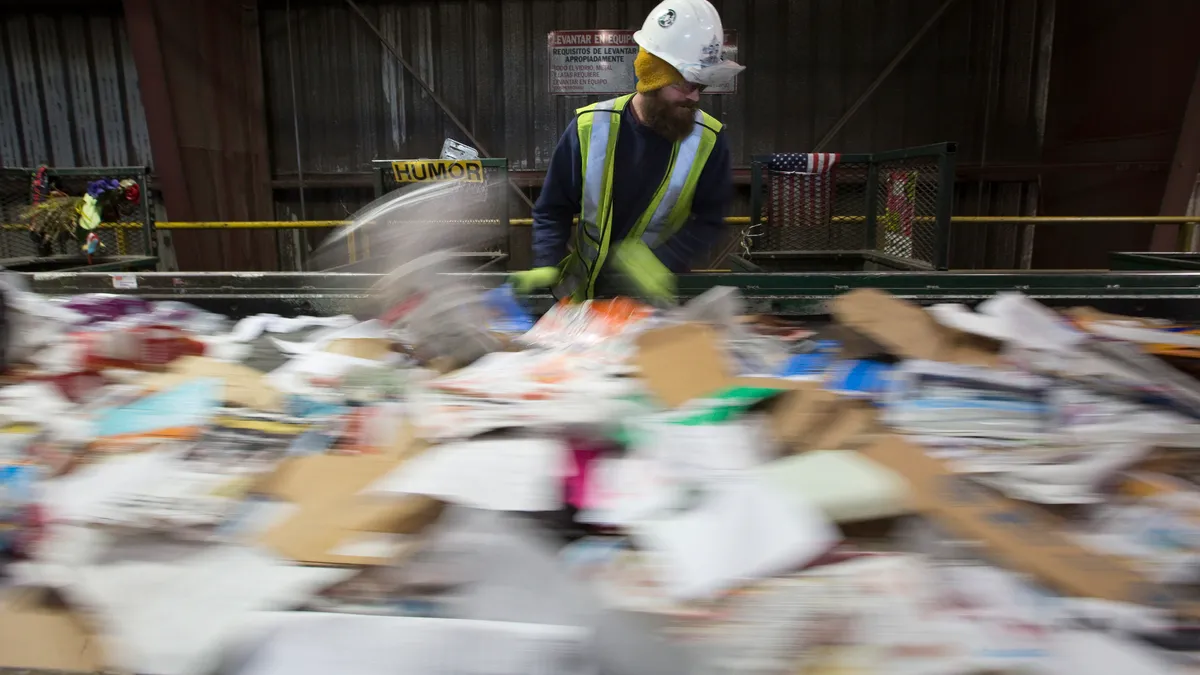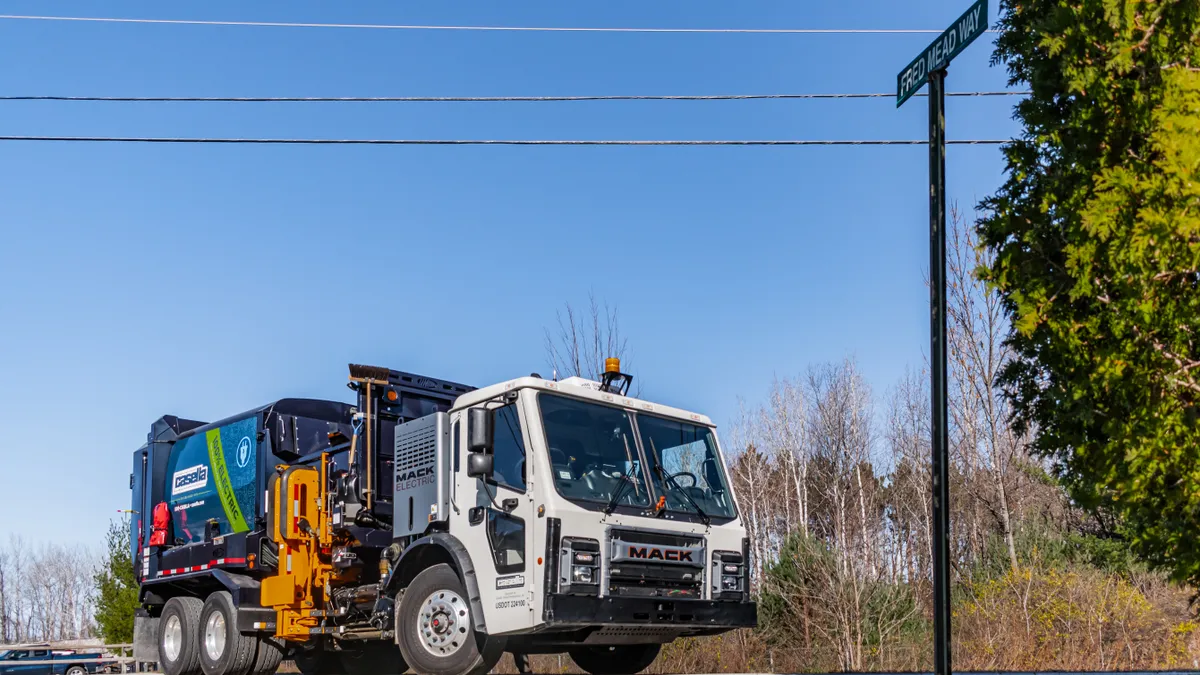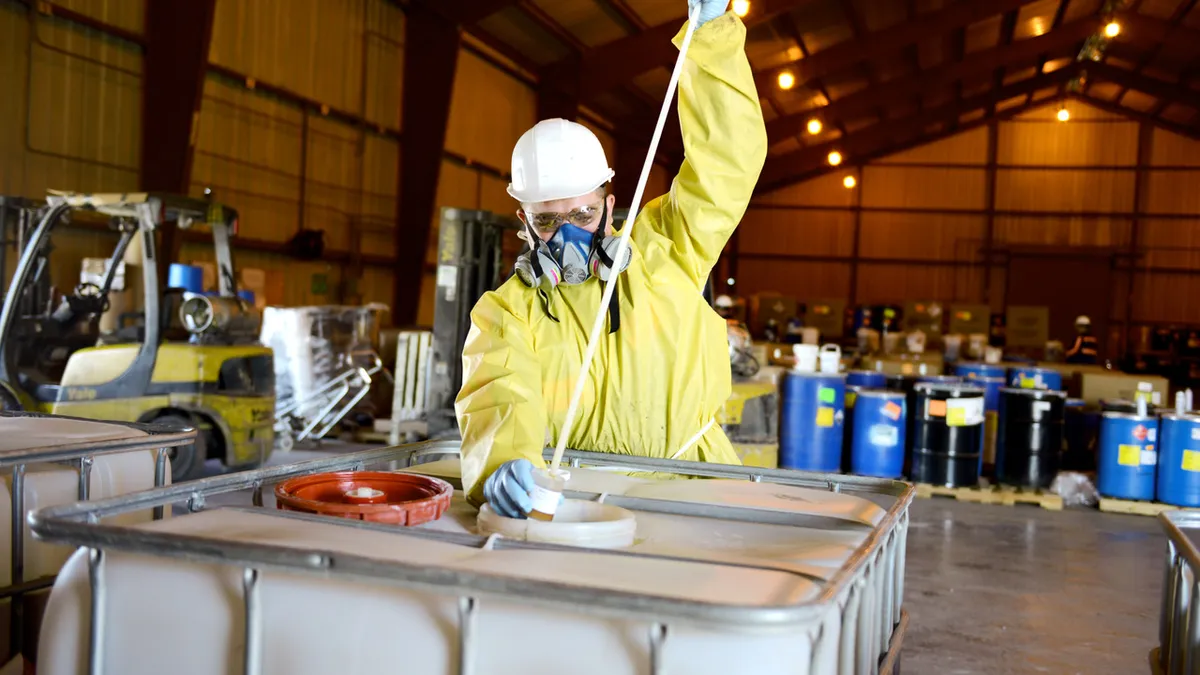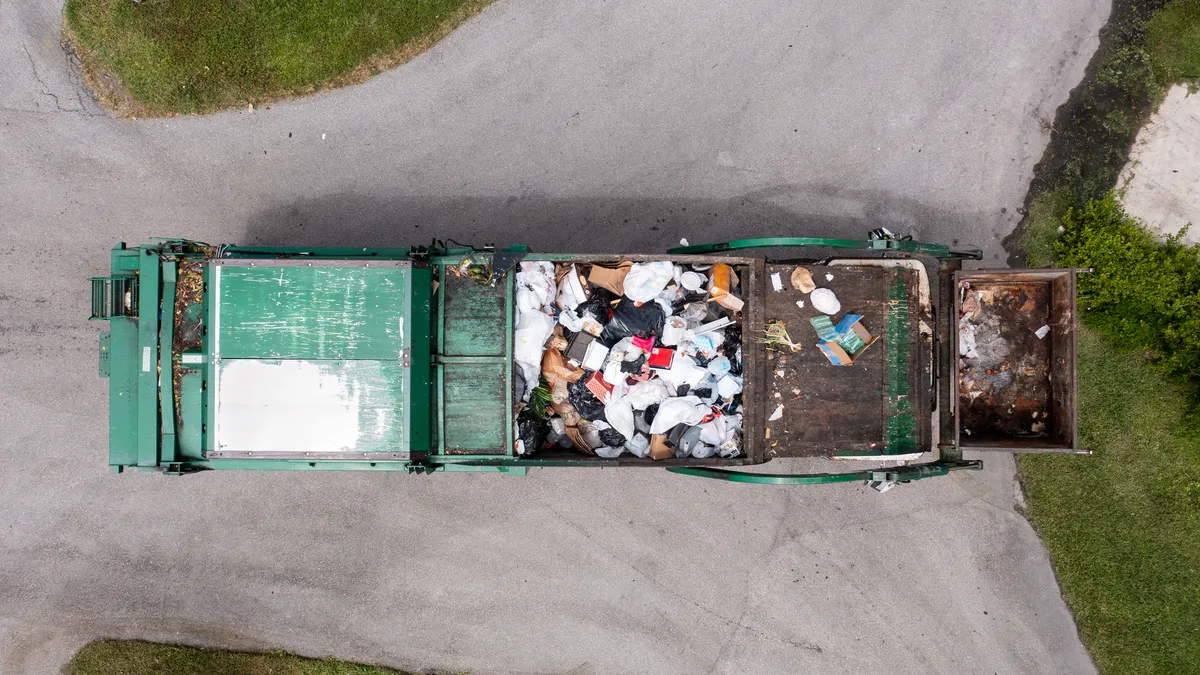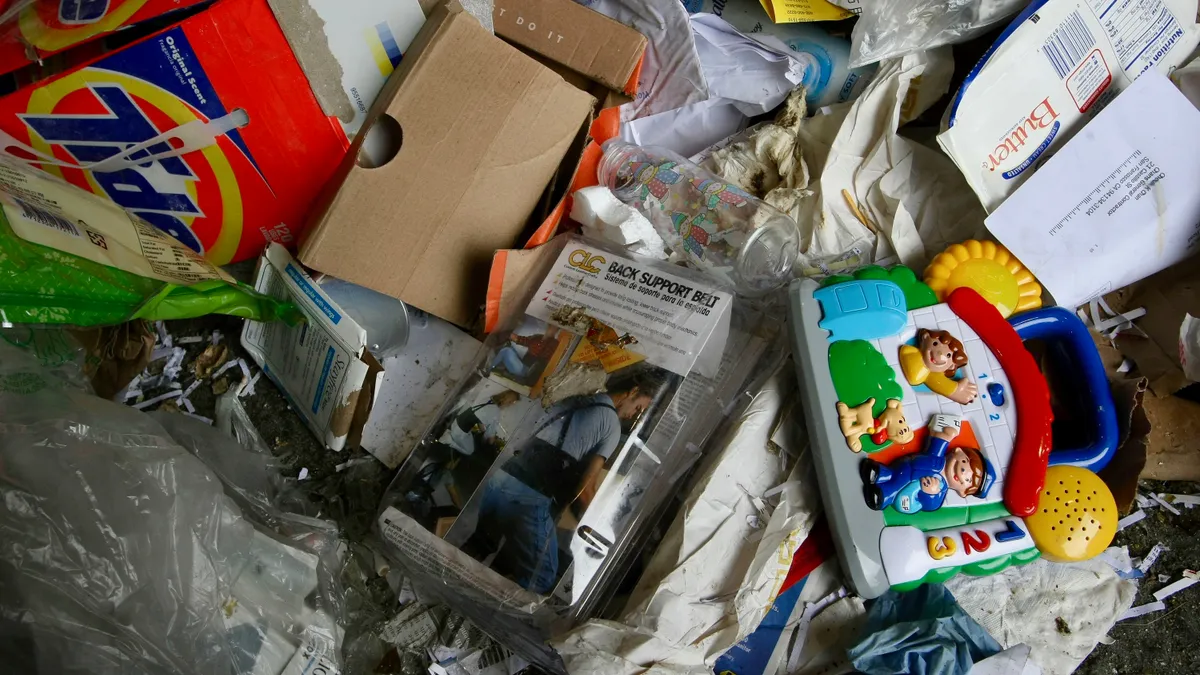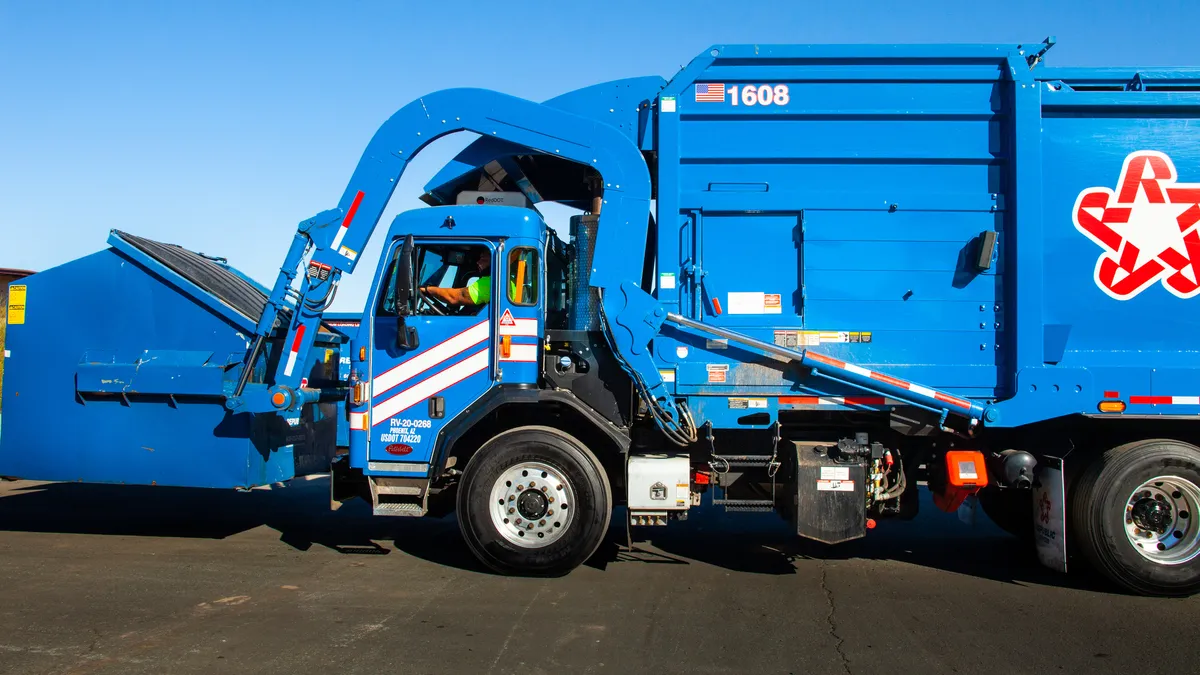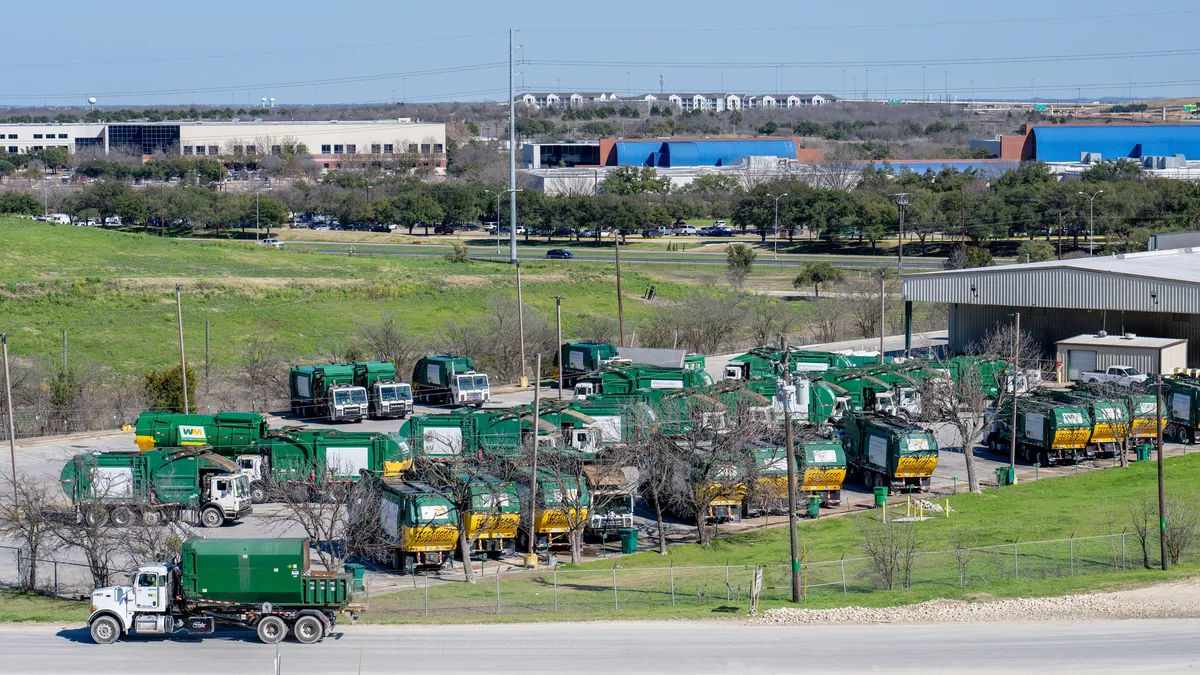The evolution of recycling may be at a crossroads as aspirational diversion targets run up against market realities. This year, The Recycling Partnership has been an increasingly reliable voice in the middle of all those conversations.
With China's market effects an ongoing concern, the national nonprofit recently hosted a webinar on the topic that was seen as the most comprehensive yet. Before National Sword or import licenses were common talking points, The Recycling Partnership was working with cities and states on contamination reduction tools. That local work has also entailed grants and technical assistance for new recycling carts, education and data collection in cities around the country. Some of the more recent examples include Chicago, Denver, Atlanta and Portland, ME.
Waste Dive spoke to CEO Keefe Harrison for her take on China, the role of single-stream, new ways to engage with consumers and the state of national recycling policy in the U.S.
The following interview has been edited for brevity and clarity.
WASTE DIVE: What's your latest sense of China news, since the webinar?
KEEFE HARRISON: We pride ourselves on being recycling realists. We're not trying to make things lighter than they are. We want to know exactly what the landscape looks like, so we're able to navigate within that. This isn't the first challenge we've seen in global marketplaces over the years.
We have learned from past experiences that the best way to weather them is through relationships. So we're encouraging people to first not freak out, and second, really work on their relationship with their MRFs. Understand how material flows through and what we can all do to get really clean loads to the MRFs and to markets while we wait this out and see how global markets shift. I would say we're really eager to hear from communities on what they need. We want to know what would help people either speak to their leadership in the city, to build their relationship with their MRF or their broker, or how do they convey this to the public that might be hearing or reading something.
Does it ever give you pause about whether single-stream is still going to make sense if the China restrictions are as severe as some think, or is there a way to make it work with the current system?
HARRISON: We have to look at how have we set up the infrastructure in this country, and it's primary single-stream. So going back to the recycling realists that I said we are, that's the nature of collection. Why does that exist? Well, because it's the most cost- and operationally-effective for communities. They're looking for, 'how do I deliver a good service at the best price?' and they're also very concerned about worker safety. Automated single-stream service delivers that for them. So I think that there will be a real reluctance to swing back to a multi-stream collection, because this recycling supply chain is based on the decisions of more than 20,000 local governments, who are frankly more interested in providing a good service to their citizens and keeping their citizens happy than they are understanding exactly what National Sword means and what market changes will mean.
Waste and recycling is a very local, case-by-case situation and sometimes different even within states. Though when I talk to people from other countries they're often surprised that the U.S. doesn't have a national recycling policy.
HARRISON: While our model focuses entirely on the U.S., we do work with other countries who are trying to expand their recycling programs. Often, that's in relationship to a corresponding effort to reduce marine debris. The way that I explain it is expecting recycling to work perfectly as driven by markets alone will leave you disappointed. When we look across the globe at really robust systems, we see one of two things. Either there's a government-backed policy, or a voluntary one. In the United States, there was not a government policy. So we were born. We were built three-and-a-half years ago, to be that intersection of public and private sectors to make the whole system work better. We work with communities because that's the beginning of the reverse supply chain that is recycling.
What role do you see for the EPA in this national recycling conversation?
HARRISON: We have a close relationship with EPA. What we do is look at the system of recycling and what are the major barriers holding it back. Those fall into basically two buckets. One is access... Although recycling feels universal, only half of Americans can recycle at home as easily as they can throw something away... We also work on our second bucket, which is optimization. So for programs that already exist, how do we make them better? That comes down to contamination and it comes down to participation, but it also is working with city leaders on what's an appropriate budget for a recycling program. How do you manage a contract so that your MRF wins and the city wins? How do you build relationships with other communities around you so you're not working in a silo, but you have the benefit of collaboration?
"It's not that we're recycling diehards. It's that we see this U.S. system that's underperforming."

Keefe Harrison
Executive Director, The Recycling Partnership
I think EPA's figuring out how to navigate all of that. EPA is a definite ally and partner of ours. I see them in a convening role. They're driving some new measurement approaches that we find very interesting. We have long talked with them about the national recycling rate as not a very effective measurement of how robust the U.S. recycling system is or how effective we are at changing it. The way that it's structured doesn't reflect the evolving ton. It doesn't reflect that packaging is getting lighter. We're really excited about some of the measurement initiatives that they're working on.
We've seen movement, including from some large public companies, away from weight-based measurement toward greenhouse gas measurement. Is that the way to go?
HARRISON: It's only one way to go. I don't think it's fair to say that there's only one way to measure this robust and diverse system that is recycling. What I worry about when we see companies shifting to a purely greenhouse gas-driven analysis is, are they looking for an opportunity to effectively exclude things from the stream. What worries me about that is we're stifling the natural innovation that is part of our industry.
Related to that question of measurement, focusing on consumption and reduction is also a growing part of the conversation. A lot of The Recycling Partnership's funding comes from manufacturers. Is there ever any hesitance to the idea of less items being purchased as part of that broader reduction conversation?
HARRISON: No, not from staff. We have done a pretty good job of keeping really focused, an eye on the prize of overhauling the U.S. recycling system. But that doesn't mean that we have blinders on to other important topics like composting and like reducing. Recycling is part of the three Rs, and we see it as that. Our organization's focus is meant to fuel our productivity, but it's not an exclusive approach to how we make change in the world. I think that gets to the point of why do we work on recycling. It's not that we're recycling diehards. It's that we see this U.S. system that's underperforming. If we can get it going, that's 22 million tons that we could get back into the system, just from households alone. That 22 million tons has a multi-billion dollar MRF value and is equivalent to annually removing 10.5 million cars from the road. There you really nail on why do we do this work. We see recycling as a means to greater good. We see it in its connection to material resource conservation, but we also see it as healthy communities.
That ties into the education conversation and the ongoing confusion among some consumers about how recycling works. What are your thoughts on ways to bring them into the process more and help explain such a complex system?
HARRISON: You've hit on the foundation of how we approach community education and how we help our community partners talk to their public. You can't guilt people into recycling. If you're using a guilt-based message you're really only connecting with the people who already feel guilty about it.
"I really thought it would be our fiscal capital that would be in the most demand, that people would want our grants most. What we've learned over the years, is that it's our human capital that's in greater demand."

Keefe Harrison
Executive Director, The Recycling Partnership
So how do you begin to go after the people who are interested in recycling, or maybe not that interested in recycling, but could be? That reincarnation message of recycling is proven to be interesting to them. The idea that today's cans could be tomorrow's airplanes. We know that that's important, but they only have so much appetite for it. Our goal when it comes to education is not to make people think about recycling every day, but to get to the point where people can recycle without thinking. So that's point one. Can they do it? Do they have a bin? Then second, have we worked nationally to reduce the confusion about what goes in that bin? So that it can become second-nature and we're not trying to make the case all the time.
Looking ahead to 2018, what comes next for The Recycling Partnership?
HARRISON: As we continue to grow we're looking at regional reinforcement. How can we start to build out in a ripple around those community partners so that we're building consistent programs across MRF-sheds? So people will see the consistent program between home, work and play. We really think that delivering both a city and a state model allows us to more effectively make change and to work with our partners.
The only thing that surprises me is that when we built the model, I really thought it would be our fiscal capital that would be in the most demand, that people would want our grants most. What we've learned over the years, is that it's our human capital that's in greater demand. So that's the time of our staff, either on the technical side or the communication side, to help elevate programs. So we're not just plugging in a new campaign, we're really sitting down with the mayor of Chicago and his whole finance team and helping them understand what their peer cities look like, how they could develop, how they could leverage. That human capital is the one that I think will continue to be our leading deliverable. Putting time and effort into a better system. The way we make that most successful is through leveraging partnerships, both public and private.



